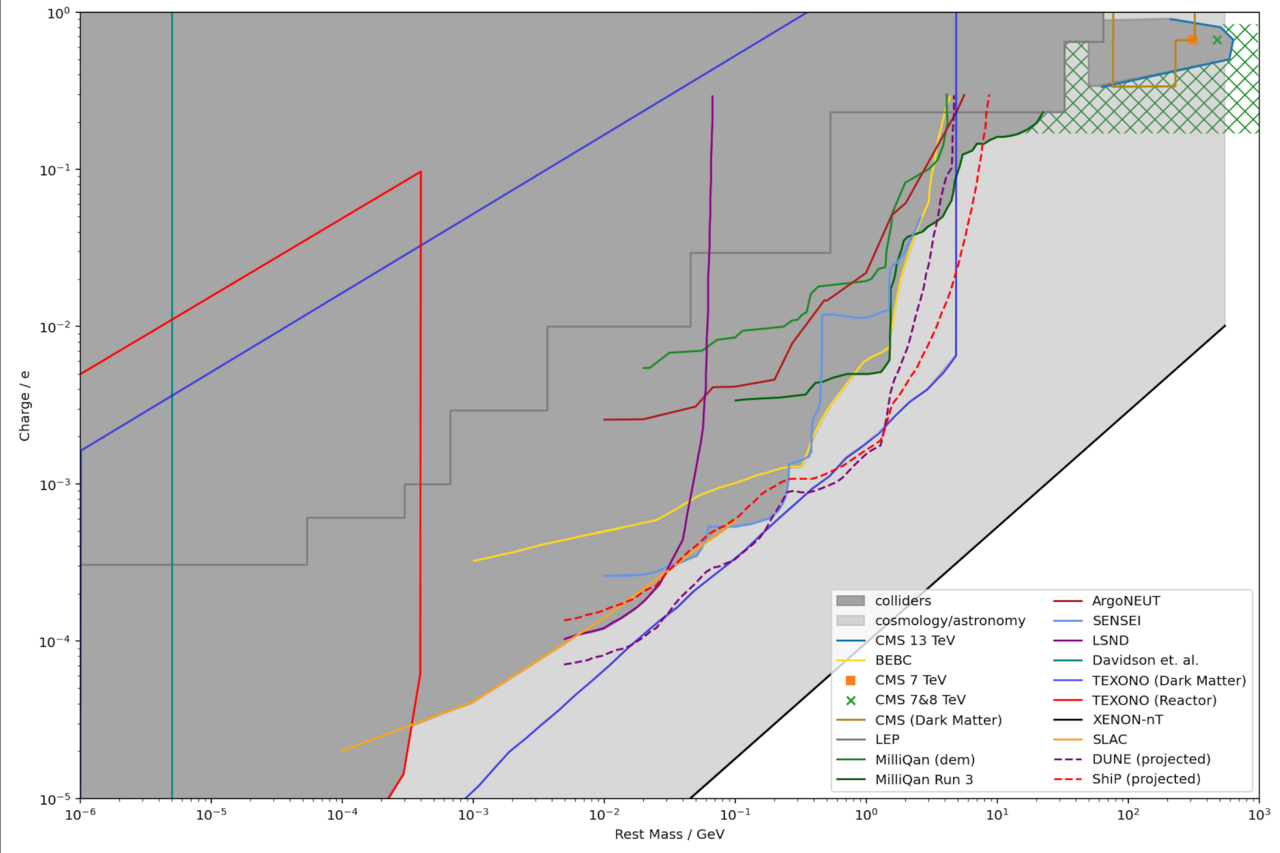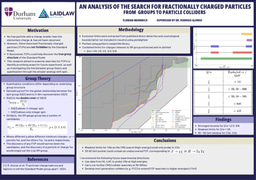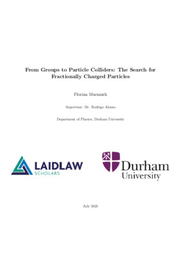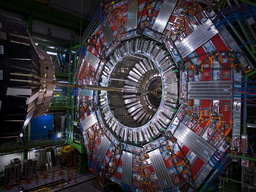Final Week - Reflections

As I spend the last few days of my project on report writing, I thought it would be a good opportuntiy to reflect on the work I've done over this 6-week project, and my learnings. The first two weeks of my project were spent learning a lot of group theory. I did work on Lie groups, Lie algebras and some representation theory, focusing on SO(3) and SU(2). Specifically, I looked at the relationships between these groups and devised a proof that demonstrates that SU(2) is the double cover of SO(3). These groups served as a useful way to understand how different formulations of the Standard Model gauge group result in different charge quanta, without having to deal with SM group itself, which is rather more complicated.
This mathematical approach to the question of charge quantisation and fractionally-charged particles (FCPs) was fascinating, but by the 3rd week I was keen to shift focus towards the experimental side. After all, while fractionally charged particles are not ruled out by current SM theories, they have not yet been observed.
Weeks 3 and 4 were filled with reading papers, extracting data from exclusion plots, and creating my own exclusion plot in python. While this process was pretty mundane, it was incredibly rewarding. By the end of Week 4, I had a full exclusion plot of charge against mass for over 15 FCP searches, with a secondary flus-mass plot displaying cosmological searches. The two weeks spent on this certainly taught me not to underestimate the time that meticulous literature and data reviews take.
In Week 5, I could finally get some results. From my plot, I could extract the excluded masses for the charge quanta corresponding to each possible SM gauge group. More importantly, I looked at the regions that had not yet been excluded - why had they not been tested? Could known, possible processes produce them in these regions? This allowed me to make 3 main recommendations for future FCP searches. I'm optimistic that the first two could be carried out soon, as they operate within current experimental constraints at the LHC. I found this to be a surprisingly creative process; a completely different experience to just learning physics at school or in this past year.
All in all, it's been a fascinating few weeks, which have resulted in the development of my mathematical and analytical skills. I've learned how to manage data and use it to link experiment to theory. Now, with the hard work done, I can engage in the rather enjoyable process of writing it all up.



Please sign in
If you are a registered user on Laidlaw Scholars Network, please sign in